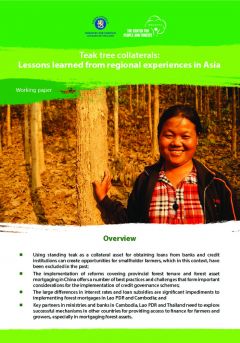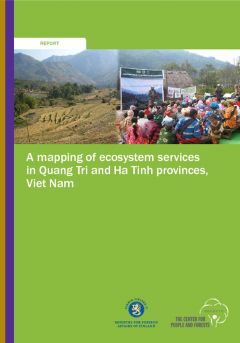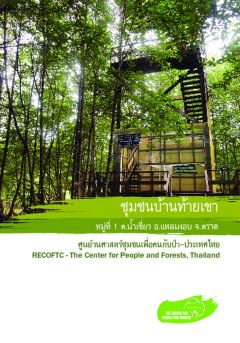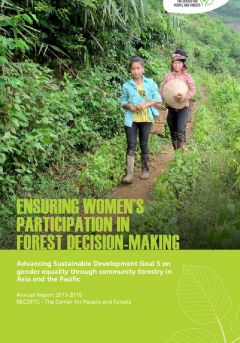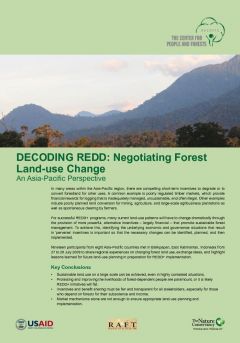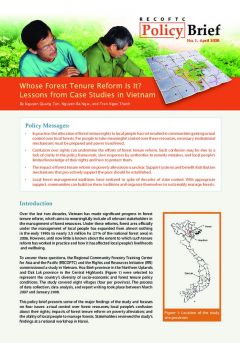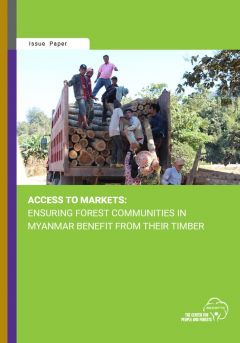Teak Tree Collaterals: Lessons Learned from Regional Experiences in Asia
This brief gives an overview of how using standing teak as a collateral asset for obtaining loans from banks and credit institutions can create opportunities for smallholder farmers as well discussions on the implementation of reforms covering provincial forest tenure and forest asset mortgaging in China that offers a number of best practices and challenges that can be considered in the implementation of credit governance schemes in the ASEAN region.

